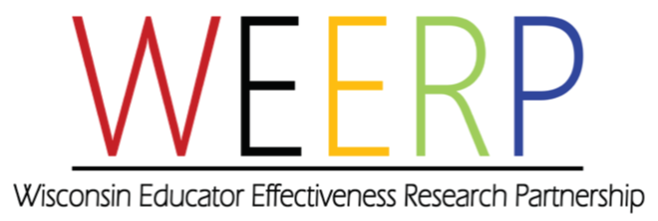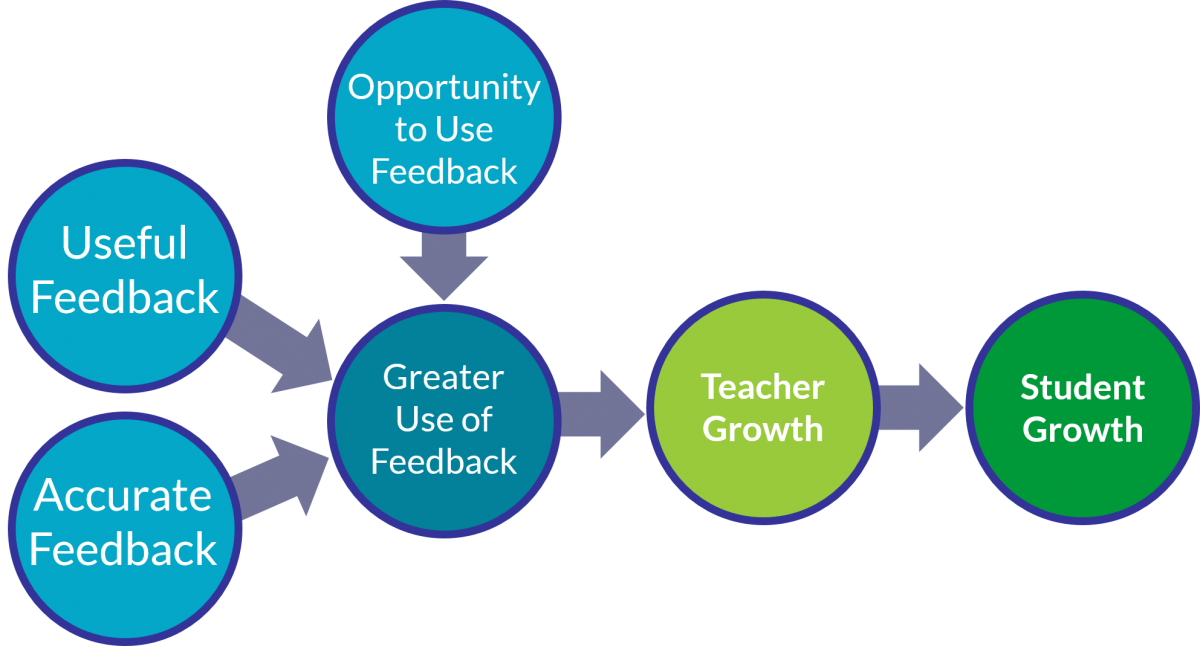Learning-Centered Evaluation

DPI purposefully designed the Educator Effectiveness (EE) System as a learning system to help educators continuously grow professionally, with the ultimate goal of improving outcomes for all students. Starting with the pilot years of the Educator Effectiveness System in 2012-13, external evaluation studies have helped inform DPI and educators across the state. The following findings are based on this extensive evidence base as well as related national studies.
Local Leaders of Educator Effectiveness Have Improved Implementation
The results of the 2018 Wisconsin Educator Development, Support, and Retention (WEDSR) survey indicate that local district leaders across the state have increased time and efforts to support feedback and coaching opportunities.
- Leaders have focused on creating time for EE: Last year, teachers were three times more likely to indicate their principal/school provided enough time to focus on EE than in the first years.
- Leaders have focused EE time more on observing practice and coaching: Across this time, the number of teachers receiving verbal feedback or coaching conversations at least twice a year has more than doubled.
- Leaders have improved as instructional leaders and coaches: A principal in the average school in 2018 provides more useful performance feedback to teachers than principals in 83% of all schools in 2016.
These learning-centered implementation strategies can have a tremendous effect on new teacher retention and student achievement.

EE & New Teacher Retention
Effective implementation of the teacher performance feedback process promotes the retention of new teachers. Providing new Wisconsin teachers accurate performance feedback led to improved trust with their principal, greater commitment to their school, and greater retention. After just two years, over 40% of new teachers had left their school. Teachers who stayed in their school received more face-to-face feedback and perceived the feedback provided to be more accurate. Ultimately, these processes had a large impact on the extent that new teachers trusted their principal and felt committed to their school. Teachers more committed to their school were more likely to stay.
Read the report: The Impact of the Wisconsin Educator Effectiveness Process on New Teacher Turnover
KEY FINDINGS
- New teachers in schools that implement EE as a learning-centered process, with useful and accurate feedback, have greater trust in their principal and view them as a more effective leader.
- By increasing the trust teachers have with their principal, a learning-centered EE approach promotes greater teacher commitment to their school and results in greater teacher retention. The opposite is true in schools that provide less and less effective feedback.
- These results suggest that EE can either promote or hinder the retention of new teachers, depending on how it is implemented.
EE & Student Achievement
Read the report: The Impact of the Wisconsin Educator Effectiveness Process on Student Achievement
KEY FINDINGS
- Wisconsin schools have greatly improved the quality and use of performance feedback provided to teachers.
- School increases in the opportunities for teachers to use feedback were associated with improved student achievement results.
- School increases in the amount teachers use feedback to improve were associated with improved student achievement results.
The Wisconsin Educator Effectiveness Research Partnership (WEERP) is a research-practitioner partnership between the Office of Socially Responsible Evaluation in Education at the University of Wisconsin Milwaukee, The Wisconsin Center for Education Research at the University of Wisconsin Madison, and the Wisconsin Department of Public Instruction. WEERP conducts rigorous and relevant research to inform the efforts of Wisconsin Educators to improve educator effectiveness and achievement for all students.